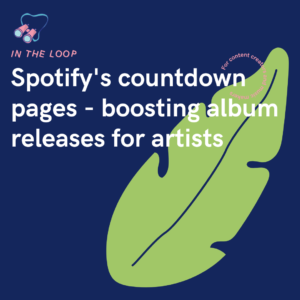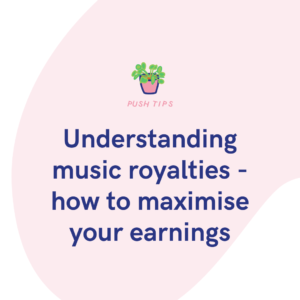Spotify has announced changes to its policy. These updates will help artists of all levels, which is pleasing to hear as many of our users are independent artists.
Spotify, the big music streaming company, recently announced some changes to its policies. These changes are expected to help artists, both new and professional, earn more money. Spotify says it plans to increase revenue by £1 billion for artists over the next five years because of these changes. Good news for all artists, it seems.
All of these new rules came into effect from the 1st April 2024. We promise, there was no joke involved, they really have been introduced as of the new tax year. The rules are to ensure fair play for everyone. Their aim is to prevent anyone from having unfair streams which could result in them being paid more than they have rightfully earned.
The new rules have three main goals:
- To stop fake streaming
- Ensuring artists get paid fairly
- Prevent people from cheating the system
One of Spotify’s new rules says that a song must have at least 1,000 listens in the past year before it can start making money for the artist. This is to prevent people from playing the song hundreds of times just to make money. Spotify won’t say how many different people need to listen to the song for it to start making money.
This is to stop people from trying to cheat the system. Which, unfortunately, does happen. People have become clever at designing bot accounts which just play the song on constant loop. So if Spotify were to give an exact number of accounts that need to stream a song, these people would find a way to make that happen, and therefore game the system.
Spotify to charge labels and distributors
Spotify also plans to charge record labels and music distributors when they find out that fake streams are happening. This is to make it less appealing for people to cheat the system in the first place. It could be an unfair hit on distributors and labels, however. After all, distributors especially handle thousands of artists. Can they really check every stream?
The music streaming platform has also changed the rules for certain types of recordings, like white noise or nature sounds. These recordings must now be at least two minutes long to make money on Spotify. Again, this will prevent people putting little to no effort into a short track and then earning money by repeatedly streaming it.
Some people were making very short recordings of these sounds just to make more money. By making the recordings longer, Spotify hopes to stop this from happening. Essentially, Spotify are trying to find every way they can of ensuring all streams earned are legitimate and for songs that have been made authentically.
Last month, another music streaming service called Deezer also made changes. They removed over 26 million songs, including some noise tracks, because they wanted to focus on the music that people really enjoy. Overall, these changes should help make the music industry fairer for everyone. Especially for artists who work hard to create great music.







